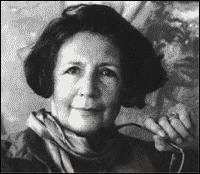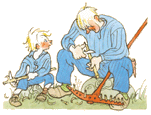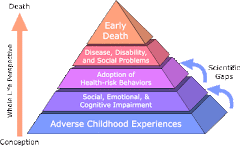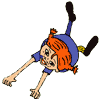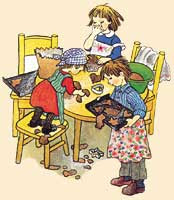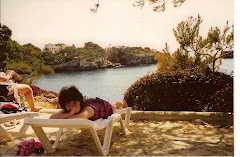
Yesterday I watched “Stars on Ice” on TV, and today I read the article "Zombierna anfaller" ("The zombies are attacking") by the Swedish journalist Maria-Pia Boëthius, and I have also started to read the book “Stridens skönhet och sorg” (in English something in the style “The fight’s (or battle’s) beauty and sorrow”) by the Swedish historian Peter Englund, with portraits of ordinary people during the WWI built on real accounts and real people - and what I read, and am reading, made me think. You can read parts of the book here (in Swedish).
Boëthius writes (in my a little free amateur translation):
“That journalists are nasty at work doesn’t mean anything? Hey? Yes, they are only playing their roles. What!? The typical case is Alex Schulman, or we can call him ‘Alex Schulman’. Because he doesn’t exist in real life, he says himself. The bullying style is just a funny gimmick.”
Alex Schulman was invited to the Swedish radio apropos bloggers and that he had become unfairly flown on the throat by another Swedish journalist in a debate-program in Swedish TV because of his nasty style as blogger for one of our biggest evening papers.
Now it was revealed that it isn’t the real Schulman that is nasty in the blog, but his fictive self! He has taken the literary and, as one could understand, the heavy burden on his shoulders being the one flying on peoples’ throats.
Boëthius draws parallels to when she and her siblings were children and her brother had a brilliant creation, namely
Boëthius wonders where all those probably million fantasy-mates people had when they were children have disappeared. She wonders if not many of them have gotten jobs on Swedish newspapers (and on papers, and other media, in the world?).
My reflection, spontaneously, over what Boëthius wrote was: “...not taking on the responsibility for (what you say or do or who you are)!"
And it also struck me that Alice Miller has written about cynicism and irony in one of or both her last two books.
I also reacted quite a lot at the jury members in “Stars on Ice” and what they said to the ones competing during the competition, their style of saying it and the content in what they said. I don’t think what they were saying and how they said it was fun at all. And not entertaining either. And not interesting. They were just nasty! Nasty for the competing people's own good? But they could probably handle it as they were grown ups. But the young people in "Idol"!?? See Bob Scharf on "Reality TV".
I have only read the first 30 pages (of over 600) in the book “The fight’s beauty and sorrow” and my interpretation so far is that people actually didn’t know why that war started. The conflicts underlying it weren’t so big so they hadn’t been insoluble and the war wasn’t unavoidable at all. But there was an excited rhetoric and a high-pitched worked up propaganda, and all this contributed to making the war unavoidable when it was viewed as unavoidable. Many people seemed to go out into the war with high expectations to fight for their country! And people at home said goodbye with flags and music! Many people didn’t seem to really realize how horrible a war actually is!
The American neurologist Jonathan Pincus writes about societal approval unleashing drives in people harmed early in life… See the earlier posting “Evilness and responsibility…” and earlier postings under the label Trent Scaggs.
Alice Miller writes at page 206 in her book “The Body Never Lies”:
“Inability to face up to the sufferings undergone in childhood can be observed both in the form of religious obedience and in cynicism, irony and other forms of self-alienation frequently masquerading as philosophy or literature.”
And at page 139 she writes:
“…feelings (one’s own and those of others), are something to be jeered at [hånad, gjord narr av]. In show business and journalism the art of irony is a well-paid commodity, so it is possible to make a great deal of money with the suppression of one’s feelings. Even if one ultimately risks losing contact with oneself and merely functioning as a mask, an ‘as if’ personality, there are always drugs, alcohol, and other substances to fall back on. Derision pays well, money is no object. /…/
But because these emotions are not genuine, not linked up with the true story of the body, the effect is bound to wear off [avta] after a time. Higher and higher doses are required to fill up the void left by childhood.”
So you need more and more and more until you can face up to the things underlying...







